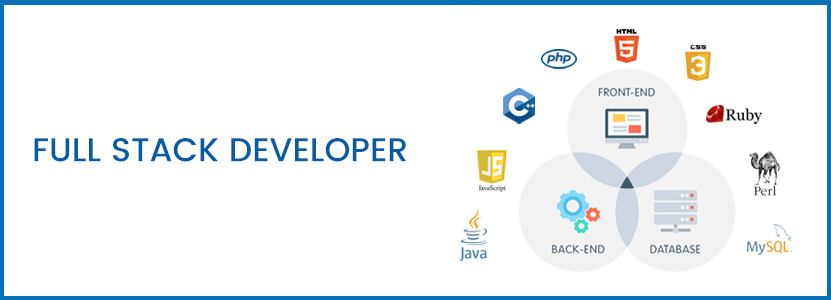Insightful Chronicles
Exploring the world through news and stories.
Full-Stack Frenzy: Code Like a Chef
Unleash your inner code chef! Dive into Full-Stack Frenzy for spicy tips, tasty tutorials, and recipes for full-stack success!
Mastering the Art of Full-Stack Development: Essential Skills for Aspiring Chefs
Mastering the art of full-stack development is akin to becoming an accomplished chef in the world of technology. Just as a chef needs to master various cooking techniques, aspiring developers must learn a diverse array of skills that span both front-end and back-end technologies. The foundational skills include HTML, CSS, and JavaScript, which form the crux of any user interface. Additionally, knowledge of MongoDB or MySQL for database management is essential, as is understanding server-side frameworks such as Flask or Node.js. By integrating these technologies, developers can create dynamic and responsive applications that engage users effectively.
Moreover, it's important for aspiring full-stack developers to develop soft skills that complement their technical acumen. Critical thinking, problem-solving abilities, and effective communication can greatly enhance a developer's workflow and collaboration efforts within a team. According to Codecademy, understanding version control systems like Git is also vital for managing project changes and collaborating with others. Embracing these essential skills will not only prepare aspiring chefs for the demands of full-stack development but also set them on a path to culinary excellence in the tech arena.

10 Ingredients for a Perfect Full-Stack Recipe: Tools Every Developer Needs
A successful full-stack developer relies on a robust set of tools to build end-to-end applications. Here are 10 ingredients every developer should consider including in their toolkit:
- Version Control System: Tools like Git enable developers to track changes and collaborate efficiently.
- Text Editor or IDE: Choose an integrated development environment like Visual Studio Code that supports extensions and debugging features.
- Frameworks: Familiarize yourself with popular frameworks such as React for the frontend and Express.js for the backend.
- Database Management System: Understanding both SQL (like PostgreSQL) and NoSQL databases (such as MongoDB) is crucial.
- API Development Tools: Tools like Postman are essential for testing API endpoints.
The remaining five ingredients can significantly influence your development process. 6. Containerization: Tools such as Docker help to package applications and manage dependencies. 7. Cloud Services: Familiarize yourself with cloud platforms like AWS to deploy and scale your applications effectively. 8. Testing Frameworks: Quality ensures reliability; utilize testing tools like Jest for efficient unit testing. 9. Monitoring Tools: Tools like Sentry monitor application performance, while 10. CI/CD Tools: Frameworks such as Jenkins automate the integration and deployment process.
From Kitchen to Code: How Culinary Skills Enhance Your Programming Abilities
In today's fast-paced tech environment, the skills acquired from culinary arts can significantly enhance your programming abilities. Both fields require creativity, precision, and a systematic approach to problem-solving. Just as a chef follows a recipe to create a delicious dish, a programmer adheres to a set of coding guidelines and frameworks to build effective software. This parallel not only deepens our understanding of complex programming concepts but also nurtures our ability to think critically. Harvard Business Review discusses how culinary professionals develop exceptional attention to detail, which is essential for debugging code and ensuring flawless execution.
Furthermore, cooking teaches us the importance of experimentation and iteration. Every dish is an opportunity to innovate, much like writing and refining code in programming. Chefs understand that the first attempt at a recipe may not yield the desired result, prompting them to make adjustments and try again. This iterative mindset is crucial for programmers who often encounter bugs or inefficiencies in their initial code. Embracing a trial-and-error approach not only improves one’s coding proficiency but also fosters resilience in facing challenges. For more insights on how skills from other disciplines can improve programming, check out this Medium article that explores similar themes.